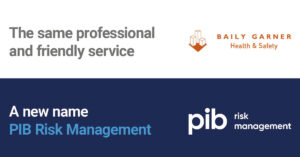The term “gig economy” is generally used to refer to people working on a less formal basis than the traditional full-time 9 to 5 job. Typically, this can involve someone working on a task by task basis for several providers, often with the work arranged through an online platform. This may be the sole source of income for some individuals while others may be using it to supplement more traditional full or part time work.
The gig economy is an increasingly important part of the whole economy and it has been estimated that around 2.8 million people in the UK work to some extent in this way.
A significant percentage of gig economy work involves driving, including taxi, fast food delivery and courier work.
The Royal Society for the Prevention of Accidents (ROSPA) has produced a new guide aimed at helping self-employed gig economy workers stay safe on the road. The guide looks at issues such as vehicles (including cars, bicycles and motorbikes), journey planning, driver fitness and safe driving. This can be downloaded from ROSPA’s website at: https://www.rospa.com/Road-Safety/Resources/Free?utm_source=Press%20release&utm_medium=Trade%20press%20&utm_campaign=Gig%20rconomy%20factsheet%20#employers%2F
While the guide is primarily aimed at individual workers it may also be of interest to those who employ such workers.
The rise in gig economy type work may blur the traditional employer / employee relationship and has implications in areas such as employment rights.
Whether or not an employer / employee relationship exists it is important to remember that health and safety legislation places duties on employers (and the self-employed) to their employees and also to other persons who may be affected by their undertakings. For example when using contractors, employers (and the self-employed) have duties to select suitable contractors, assess the risks involved in the job and to provide contractors with relevant information.
Our specialists can help you to put in place procedures and systems to help manage any non-standard workers that you use. Please speak to your normal PIB Risk management contact or get in touch using [email protected] if you have any questions.

A new name for Baily Garner (Health and Safety) Limited

50 Years of the HSE and the Health & Safety at Work Act

Building Fire Safety Updated Approved Document B Published

Protecting Properties Against Flooding

The Building Safety Act – Are you meeting your legal responsibilities?
